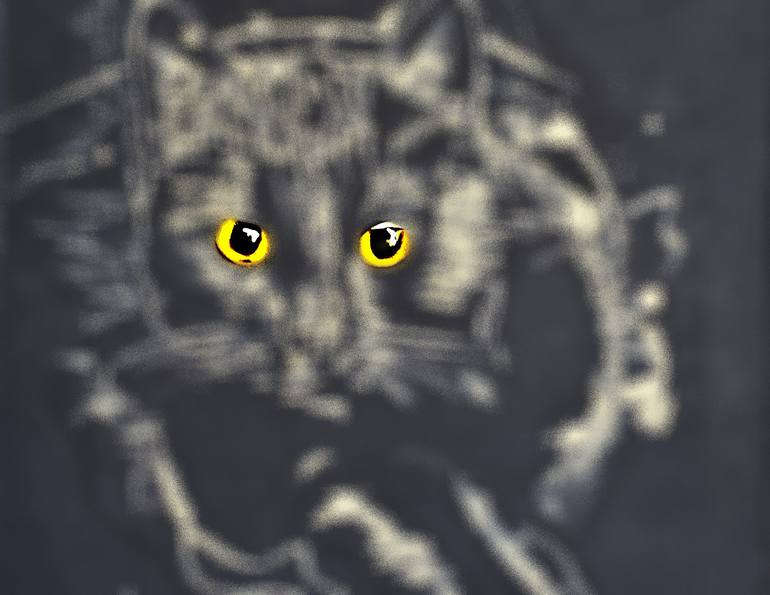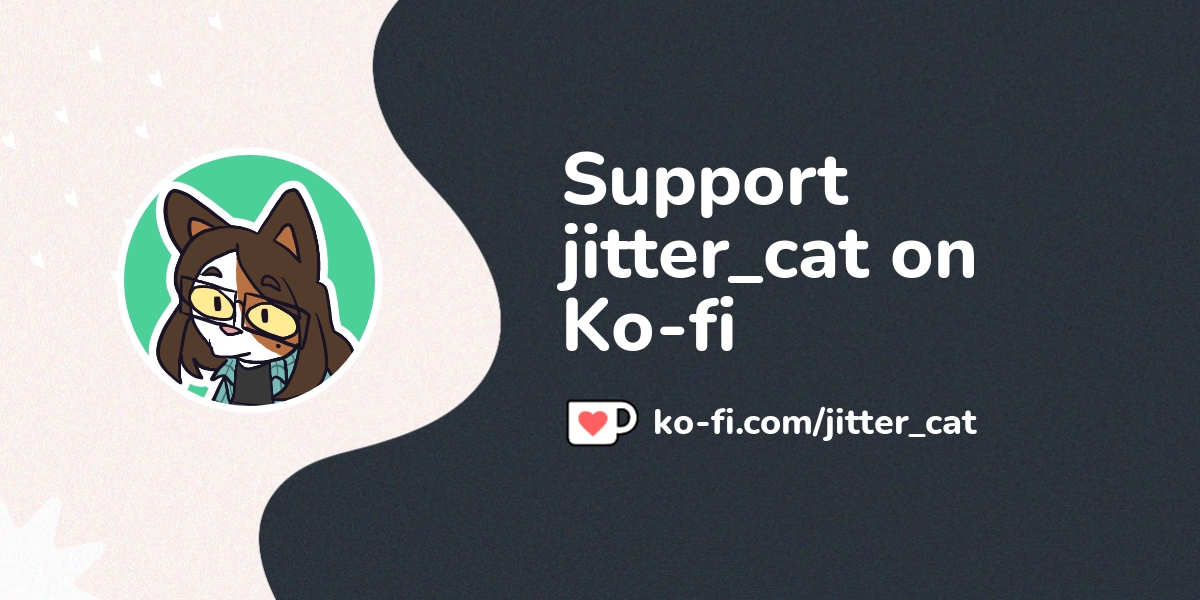Does your feline friend seem perpetually on edge, a bundle of nerves you can't quite soothe? Understanding the root causes of a "jitter cat" is the first step toward helping them find tranquility, and it can make a world of difference in your cat's well-being.
Living with a cat who exhibits anxious behaviors can present its challenges, but it is absolutely manageable. With a solid grasp of the potential reasons behind their unease, the creation of a calming environment, and the provision of enriching activities, you can guide your cat towards a more relaxed and comfortable state of being. This journey towards serenity begins with recognizing the telltale signs and understanding the underlying factors contributing to your cat's nervous disposition.
Let's delve into some specific scenarios that might resonate with cat owners. Why, for instance, does your cat's mouth seem to "jitter" or chatter, often accompanied by a clicking sound? This seemingly peculiar behavior can be intriguing, even a bit concerning, for those of us who share our lives with these enigmatic creatures. The reasons behind this often stem from the very essence of what makes a cat a cat: their predatory instincts. Chattering, the rapid jaw movements, frequently occur when a cat has spotted prey, whether that's a bird flitting outside the window or a tantalizing toy. It's a manifestation of their excitement, a physical expression of their hunting drive.
The term "jitter" itself encapsulates a feeling of nervousness or a rapid, uneven movement. We can see this with the context of your cat. But beyond hunting and anxiety, what else might be causing your cat's behavior? Could genetics, environmental factors, or even underlying medical conditions be at play? Lets take a closer look at these aspects.
| Cause | Description | Potential Solutions |
|---|---|---|
| Environmental Factors | Loud noises, unfamiliar guests, changes in the home, or a lack of safe spaces can trigger anxiety. | Create a quiet sanctuary, provide hiding spots, gradually introduce new elements, and maintain a consistent routine. |
| Genetics | Some cats may be predisposed to anxiety due to their genetic makeup. | Consult with a veterinarian about potential behavioral therapies or medication options. |
| Underlying Medical Conditions | Hyperthyroidism, dental problems, or neurological disorders can cause anxiety-like symptoms. | Regular veterinary checkups and appropriate treatments are crucial. |
| Predatory Instincts | Chattering, chirping, or clicking sounds are often associated with the cat's inherent hunting behaviors. | Provide interactive play sessions using toys that mimic prey, like the "jitter mouse," to satisfy their hunting drive. |
The category for the green/medium difficulty connections with this particular context is "cat." The answers provided, "butterfly," "jitter," "nerve," and "willy," work with the theme of cats and their behaviors, along with the physical, and emotional states associated with them. It is important to note that keeping with this theme can help one recognize the different physical and mental states of a cat.
There are also some key points to note about "jitter" or "jittering" actions and behavior of a cat.
- The word "jitter" can be used to describe something moving quickly and unevenly.
- The phrase "jitter his mouth" references behaviors.
- The action of "jittering his mouth" is often accompanied by chattering or clicking sounds.
There are other aspects to consider about this topic that one should be aware of.
The most likely reason your cat making weird mouth movements is because it's chattering. While cat chattering is normal, there may be other causes for these mouth movements. Cat chattering is a sound some cats make when they see prey. It's common to see cats chirp at a window when they see a bird or squirrel. These behaviors are often attributed to their predatory instincts. These hunting behaviors can be enhanced with the use of toys like a "jitter mouse."
Let's delve into the topic of "jitter" in a more holistic way. The term "jitter" combines the power of motion. Jitter can be a fast and simple animation tool on the web. Jitter also combines powerful features with intuitive controls that let you craft standout animations and deliver work you're proud of. Another example is the "friskies jitterbug" your cat can practice catching little bugs anytime right on your smartphone or tablet.
Consider these additional elements for the behavior of cats:
Cats with epilepsy may experience seizures that affect the jaw muscles, causing quivering. Other neurological disorders that can cause jaw quivering include brain tumors, infections, or trauma. If you suspect your cat is having seizures or other neurological symptoms, it's important to take them to the vet as soon as possible.
Now, let's look at how this can be applied to the topic of jitter, or nervousness, with internet connectivity. Knowing the type of jitter affecting your connection is key to fixing it effectively and improving your online experience. If your internet feels sluggish or unstable, you may need to look into the causes of this sluggishness. The goal for jitter clicking is to increase your clicks per second to perform like a pro in games, especially when you play against other players. Clicking speed matters when you try to make a chance to stand against other players.
Jitter is a collaborative motion design tool that lets you create professional animations in minutes, no matter your experience with motion. Whether you are on the internet, playing games, or want to see how your cat is doing, "jitter" is often a key element in determining success.
In conclusion, observing and helping a "jitter" cat can be a fulfilling experience for both the cat and the owner, and it can also be used to better understand the cat. By recognizing the signs, identifying potential causes, and implementing practical solutions, you can pave the way for a calmer, happier companion. Embrace the journey of understanding, and together, you and your feline friend can create a harmonious and tranquil home.


